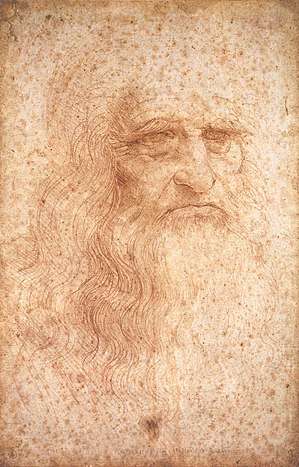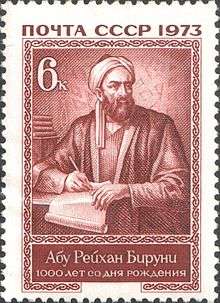Polymath

.jpg)


.jpg)

A polymath (Greek: πολυμαθής, polymathēs, "having learned much",[1] Latin: homo universalis, "universal man"[2]) is a person whose expertise spans a significant number of different subject areas, known to draw on complex bodies of knowledge to solve specific problems.
In Western Europe, the first work to use polymathy in its title (De Polymathia tractatio: integri operis de studiis veterum) was published in 1603 by Johann von Wower, a Hamburg philosopher.[3][4][5][6]
Wower defined polymathy as "knowledge of various matters, drawn from all kinds of studies [...] ranging freely through all the fields of the disciplines, as far as the human mind, with unwearied industry, is able to pursue them".[4] Wower lists erudition, literature, philology, philomathy and polyhistory as synonyms. The related term, polyhistor, is an ancient term with similar meaning.[7]
Polymaths include the great thinkers of the Renaissance and the Enlightenment who excelled at several fields in science, technology, engineering, mathematics, and the arts. In the Italian Renaissance, the idea of the polymath was expressed by Leon Battista Alberti (1404–1472) in the statement that "a man can do all things if he will".[8]
Embodying a basic tenet of Renaissance humanism that humans are limitless in their capacity for development, the concept led to the notion that people should embrace all knowledge and develop their capacities as fully as possible. This is expressed in the term "Renaissance man", often applied to the gifted people of that age who sought to develop their abilities in all areas of accomplishment: intellectual, artistic, social and physical.
The term entered the lexicon in the 20th century and has now been applied to great thinkers living before and after the Renaissance.
Renaissance ideal: the Renaissance man
"Renaissance man" was first recorded in written English in the early 20th century.[9] It is now used to refer to great thinkers living before, during, or after the Renaissance. Leonardo da Vinci has often been described as the archetype of the Renaissance man, a man of "unquenchable curiosity" and "feverishly inventive imagination".[10]
Many notable polymaths lived during the Renaissance period, a cultural movement that spanned roughly the 14th through to the 17th century that began in Italy in the Late Middle Ages and later spread to the rest of Europe. These polymaths had a rounded approach to education that reflected the ideals of the humanists of the time. A gentleman or courtier of that era was expected to speak several languages, play a musical instrument, write poetry and so on, thus fulfilling the Renaissance ideal.
The idea of a universal education was essential to achieving polymath ability, hence the word university was used to describe a seat of learning. At this time, universities did not specialize in specific areas, but rather trained students in a broad array of science, philosophy and theology. This universal education gave them a grounding from which they could continue into apprenticeship toward becoming a master of a specific field.
When someone is called a "Renaissance man" today, it is meant that rather than simply having broad interests or superficial knowledge in several fields, the individual possesses a more profound knowledge and a proficiency, or even an expertise, in at least some of those fields.[11]
Some dictionaries use the term "Renaissance man" to describe someone with many interests or talents,[12] while others give a meaning restricted to the Renaissance and more closely related to Renaissance ideals.
Related terms
Aside from "Renaissance man" as mentioned above, similar terms in use are homo universalis (Latin) and uomo universale (Italian), which translate to "universal man".[2] The related term "generalist" — contrasted with a "specialist" — is used to describe a person with a general approach to knowledge.
The term "universal genius" or "versatile genius" is also used, with Leonardo da Vinci as the prime example again. The term is used especially for people who made lasting contributions in at least one of the fields in which they were actively involved and when they took a universality of approach.
When a person is described as having encyclopedic knowledge, they exhibit a vast scope of knowledge. However, this designation may be anachronistic in the case of persons such as Eratosthenes whose reputation for having encyclopedic knowledge predates the existence of any encyclopedic object.
See also
References and notes
- ↑ The term was first recorded in written English in the early 17th century Harper, Daniel (2001). "Online Etymology Dictionary". Retrieved December 5, 2006.
- 1 2 "Ask The Philosopher: Tim Soutphommasane – The quest for renaissance man". The Australian. 10 April 2010. Retrieved 27 July 2018.
- ↑ Araki, Michael (2015). Polymathic Leadership: Theoretical Foundation and Construct Development (PDF). Maxell.
- 1 2 Murphy, Kathryn (2014). "Robert Burton and the problems of polymathy". Renaissance Studies. 28 (2): 279. doi:10.1111/rest.12054.
- ↑ Burke, Peter (2011). "O polímata: a história cultural e social de um tipo intellectual". Leitura: Teoria & Prática. ISSN 0102-387X.
- ↑ Wower, Johann (1665). De Polymathia tractatio: integri operis de studiis veterum.
- ↑ Far from suggesting or implying a distinction—such as, a distinction between math and history—the terms "polymath" and "polyhistor" are [very nearly] synonyms (as indicated by the similarities in their Wiktionary entries, polymath and polyhistor).
- ↑ "Renaissance man – Definition, Characteristics, & Examples".
- ↑ Harper, Daniel (2001). "Online Etymology Dictionary". Retrieved 5 December 2006.
- ↑ Gardner, Helen (1970). Art through the Ages. pp. 450–456.
- ↑ "va=Renaissance man — Definition from the Merriam-Webster Online Dictionary". M-w.com. Retrieved 6 April 2012.
- ↑ "Oxford concise dictionary". Askoxford.com. Retrieved 6 April 2012.
Further reading
- Araki, M. E. (2015). Polymathic Leadership: Theoretical Foundation and Construct Development (Master's thesis). Retrieved 29 January 2018.
- Burns, Peter, "What makes a Renaissance Man?".
- Carr, Edward (1 October 2009). "Last Days of the Polymath". Intelligent Life. The Economist Group. Retrieved 12 January 2017.
- Edmonds, David (August 2017). Does the world need polymaths?, BBC.
- Frost, Martin, "Polymath: A Renaissance Man".
- Grafton, A, "The World of the Polyhistors: Humanism and Encyclopedism", Central European History, 18: 31–47. (1985).
- Jaumann, Herbert, "Was ist ein Polyhistor? Gehversuche auf einem verlassenen Terrain", Studia Leibnitiana, 22: 76–89. (1990) .
- Mirchandani, Vinnie, "The New Polymath: Profiles in Compound-Technology Innovations", John Wiley & Sons. (2010).
- Sher, Barbara (2007). Refuse to Choose!: A Revolutionary Program for Doing Everything that You Love. [Emmaus, Pa.]: Rodale. ISBN 1594866260.
- Twigger, Robert, "Anyone can be a Polymath" .
- Waquet, F, (ed.) "Mapping the World of Learning: The 'Polyhistor' of Daniel Georg Morhof" (2000).
- Wiens, Kyle, "In defense of polymaths".